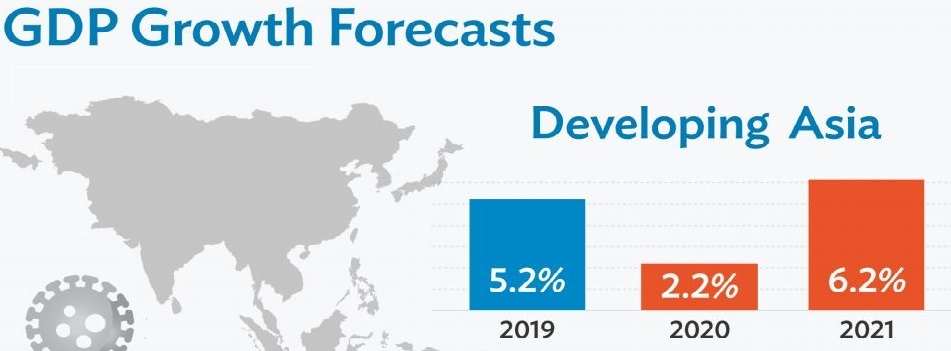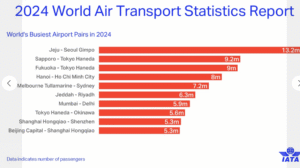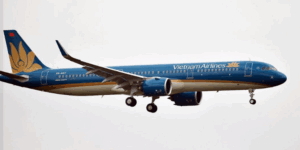Developing Asia growth to decline in 2020

ADB News— Regional economic growth in developing Asia will decline sharply in 2020 due to the effects of the novel coronavirus (COVID-19) pandemic, before recovering in 2021, according to the Asian Development Outlook (ADO) 2020, the Asian Development Bank’s (ADB) annual flagship economic publication.
The report forecasts regional growth of 2.2% in 2020, a downward revision of 3.3 percentage points relative to the 5.5% ADB had forecast in September 2019.
Growth is expected to rebound to 6.2% in 2021, assuming that the outbreak ends and activity normalizes.
Excluding the newly industrialized economies of Hong Kong, China; the Republic of Korea; Singapore; and Taipei,China, developing Asia is forecast to grow 2.4% this year, compared to 5.7% in 2019, before rebounding to 6.7% next year.
“The evolution of the global pandemic-and thus the outlook for the global and regional economy-is highly uncertain. Growth could turn out lower, and the recovery slower, than we are currently forecasting. For this reason, strong and coordinated efforts are needed to contain the COVID-19 pandemic and minimize its economic impact, especially on the most vulnerable,” said ADB Chief Economist Yasuyuki Sawada.
In the People’s Republic of China (PRC), a sharp contraction in industry, services, retail sales, and investment in the first quarter due to the COVID-19 outbreak will pull growth down to 2.3% this year. Growth will rebound to an above normal 7.3% in 2021 before reverting back to normal growth.
In India, measures to contain the spread of the virus and a weaker global environment this year will offset the benefits from recent tax cuts and financial sector reforms. Growth in India is forecast to slow to 4.0% in fiscal year (FY) 2020 before strengthening to 6.2% in FY2021.
Underpinning much of the weakness across Asia is a deteriorating external environment, with growth stagnating or contracting in the major industrial economies of the United States, Euro area, and Japan. Some commodity and oil exporters, such as those in Central Asia, will be hit by a collapse in commodity prices. Brent oil prices are expected to average $35 per barrel this year, down from $64 in 2019.
All of developing Asia’s subregions will see growth weaken this year because of weak global demand, and in some economies because of domestic outbreaks and containment policies. Subregions that are more economically open like East and Southeast Asia, or tourism-dependent like the Pacific, will be hard hit.
Economic activity in the Pacific subregion is expected to contract by 0.3% in 2020 before recovering to 2.7% in 2021.
The global cost of the pandemic could range from $2.0 trillion to $4.1 trillion, equivalent to a loss of between 2.3% to 4.8% of global gross domestic product , according to ADB.
It should be noted that the estimate does not take into account such factors as supply disruptions, interrupted remittances, urgent health care costs, and potential financial disruptions, as well as the long-term effects on education and the economy.
ADB , established in 1966, is owned by 68 members-49 from the region.
April 3 , 2020















